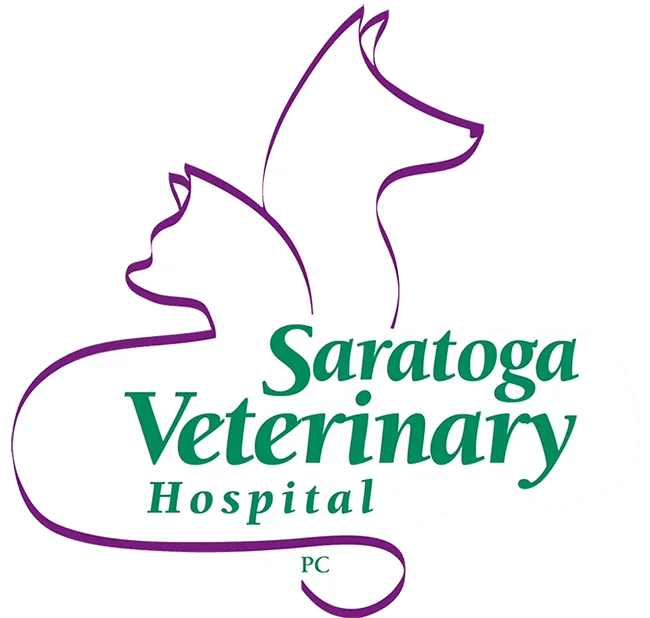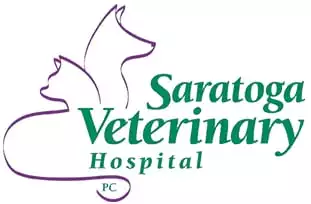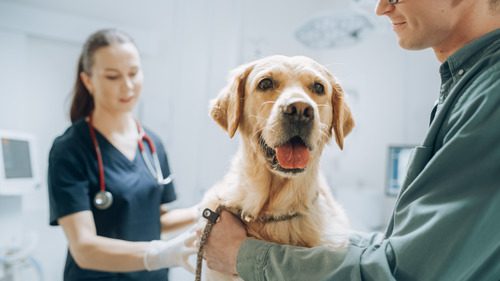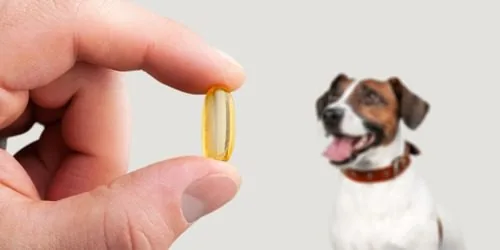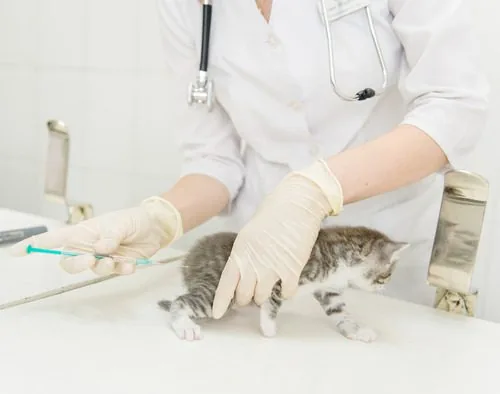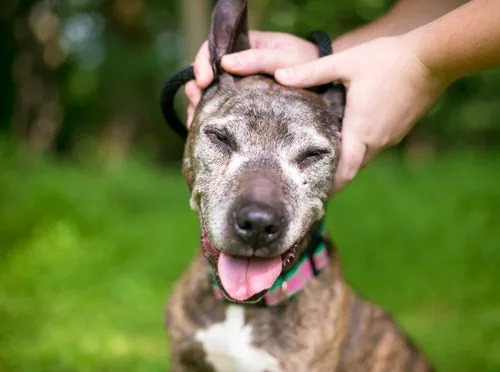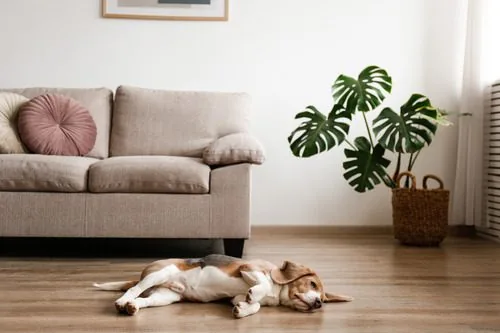Holiday Pet Safety Tips We Recommend for a Happy, Healthy Holiday Season
We all try to plan for an enjoyable, relaxing holiday, even though things don’t always unfold as expected. However, you can make the holidays safer for your pet, so they stay healthy, and you and your family have peace of mind! At Saratoga Veterinary Hospital, we love seeing your pets for regular checkups, but we don’t like seeing them for holiday emergencies if we can help it. To keep your four-legged family member out of the hospital and safe in your home where they belong, we’d like to offer some important holiday pet safety tips.
First, let’s talk about foods and decorations that should always be off limits to your pet.
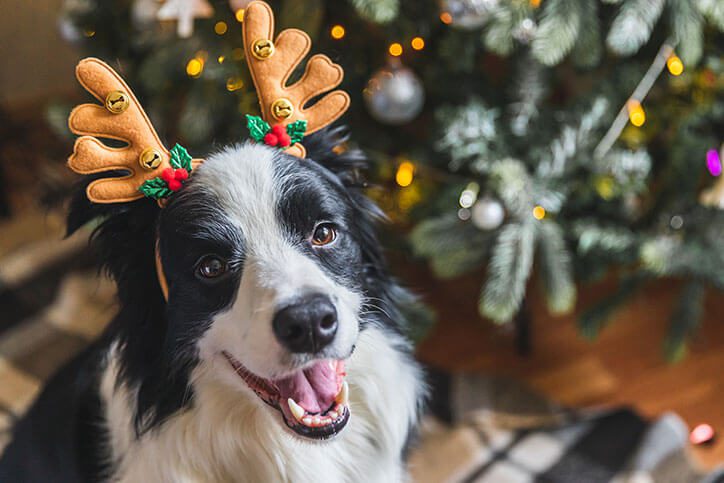
Holiday Foods and Decorations that Should be Off Limits to Dogs and Cats
Before we get into our holiday safety tips, we’ve compiled a list of off-limits foods and decorations to be careful with when it comes to your pets. These are unsafe for animal consumption and liable to cause illness or injury.
Off-Limits Foods
Be extremely careful about leaving any of these foods where your pet can reach them:
- Grapes and raisins, which can cause kidney failure in pets
- Garlic, onions, leeks, and shallots
- Chocolate, especially chocolate with a high cocao content, which can cause heart palpitations and muscle tremors in pets
- Any foods containing xylitol, a sugar alcohol that can be deadly if ingested (can include baked treats like cookies and muffins, or candies)
- Hard candies and chewy candies, which can cause choking
- Extremely greasy, fatty meats
- Seasoned meats
- Rich, sugary deserts
- Almonds and cashews (high fatty content)
- Alcohol of any kind (that includes wine, beer, and eggnog)
- Meat bones (especially chicken and turkey bones, but any bone can be risky)
Potentially Harmful Holiday Decorations
Many pets couldn’t care less about having decorations in the house and will probably leave them alone. Regardless, it’s important to consider the possible risks posed by certain decorations, such as:
- Open flame candles can easily be knocked over (this one’s a no-brainer, but it bears repeating that leaving open flame candles anywhere in your home can pose a significant fire hazard).
- Long strands of garland or streamers are tripping hazards, and your pet could get tangled up in them.
- Glass ornaments break easily and can leave tiny, sharp shards on the ground for your pet to step on. Keep glass ornaments off the tree or placed high up, where they can’t be knocked to the floor.
- Holly berries and mistletoe are both toxic to dogs and cats, especially mistletoe. Avoid using real live holly and/or mistletoe in your home and opt for the artificial equivalent if you can.
- Christmas tree water and needles are both potentially hazardous for pets. The sap from your tree will get into the tree water, and if your pet drinks this, it can make them sick. Pine needles can also be sharp or cause choking if ingested.
Holiday Safety Tips to Keep Your Pet Out of Trouble (and Out of the ER)
We know you can’t keep your pet in a bubble during the holiday season, and you shouldn’t have to! You can still have fun during your holiday celebrations, and your pet can enjoy them right along with you and your family.
Here are some holiday safety tips to keep in mind when the time for merrymaking arrives:
Keep Dangerous Foods and Decorations Out of Reach
See our list above for risky foods and decorations and evaluate your pet’s environment. Are there any choking hazards or toxic foods sitting where your pet can reach them? Keep food stored behind closed doors or set on a high shelf where it can’t be reached (though you should never underestimate your pet’s ability to reach high places if food is involved!).
Certain decorations should be treated the same way. Place fragile items and garlands higher up so your pet won’t bump into them or get tangled up. Candles should be artificial flame only, so you don’t have to worry about them getting knocked over and starting a fire. If you do choose to have flame candles in your home, make sure they have a cover and are set well out of your pet’s way.
Block Off Access to the Christmas Tree and Tree Water
Does your pet have an unhealthy fascination with your Christmas tree? Do they try to get to its water or climb up the branches? If possible, restrict your pet’s access with a baby gate or by keeping them in another part of the house, away from the tree. This might be unpleasant for your pet, but it should only be temporary while your attention is diverted elsewhere.
Make Sure Your Front Door Stays Securely Closed
Sometimes when guests enter your home, they forget to shut the front door all the way. Once people walk in, check to make sure the door is shut, or ask a family member to check. The last thing you need is to have your dog or cat slip out the door!
Keep Calm and Reach Out to Someone Who Can Help
If your pet gets into something they shouldn’t, it’s important to stay calm for your sake and theirs. You can call our hospital at (518) 583-2731 if we aren’t closed for the holidays, or you can visit the Pet Poison Helpline website and call their number (855-764-7661) to get assistance from a knowledgeable pet poison control expert.
For a potential emergency, there are several emergency animal hospitals in the area you can contact for more information or visit for immediate care for your pet. We hope you and your pet enjoy a healthy, happy, worry-free holiday season, but you also have options if you ever need help!
Recent Posts
What Does Pet Insurance Cover?
What Does Pet Insurance Cover? As pet owners, we strive to provide the best possible care for…
Veterinary Supplements for Your Pet
Veterinary Supplements for Your Pet When it comes to the health and wellbeing of our pets, we…
Do Inside Cats Need to Be Vaccinated?
Do Inside Cats Need to Be Vaccinated? When you welcome a cat into your home, you’re not…
Benefits of Adopting a Senior Dog
Benefits of Adopting a Senior Dog Adopting a dog is a big step full of excitement and…
New Treatments for Arthritis in Pets: Librela and Solensia
New Treatments for Arthritis in Pets: Librela and Solensia Arthritis in pets is a common concern that…
About Saratoga Veterinary Hospital
Saratoga Veterinary Hospital is proud to serve as your local veterinarian of choice in WIlton, NY and the surrounding areas. Since its founding in 1973 by Dr. Sofarelli, our animal hospital’s main goal has been to strengthen the human-animal bond with exceptional veterinary medicine and client services.

